Are you thinking about taking the leap from your current job to start your own business? Resigning is a significant step that requires thoughtful planning and a clear message. Crafting a professional yet personal resignation letter is essential to leave on good terms while expressing your excitement for your new venture. Join me as we explore a sample resignation letter and tips to help you transition smoothly into entrepreneurship!

Professional Tone and Language
After evaluating the current market landscape, the decision to transition from a stable corporate role to entrepreneurship has been made. This strategic move aims to seize emerging opportunities within the local startup ecosystem, particularly in the technology sector. Commencing operations in early 2024, the business will focus on innovative applications designed to enhance productivity for remote teams. Key objectives include establishing a robust online presence and fostering partnerships with other technology firms. This shift necessitates the formal resignation from the current position, allowing for a complete dedication to the new endeavor.
Clear Statement of Resignation
Resigning from a corporate position to pursue starting a personal business venture involves a significant life decision, accompanied by a thoughtfully worded statement. This resignation process ideally should reflect professionalism and gratitude for experiences gained. The resignation letter should include essential details such as the specific last working day; typically, a two-week notice period is standard. Establishing clear communication within the workplace and maintaining positive relationships might enhance future networking opportunities. Here, incorporating personal business aspirations could underscore the rationale behind this career transition while fostering an appreciative tone towards the organization and coworkers.
Gratitude and Appreciation
Resigning from a position to start an entrepreneurial venture requires a thoughtful approach that expresses gratitude and appreciation for the experiences and opportunities gained. The decision to venture into entrepreneurship involves careful consideration of motivations, personal growth, and the impact on both the organization and personal career trajectory. Emphasizing the skills developed and relationships built during the tenure highlights the positive influence of past employment. Acknowledging specific mentors or projects that contributed to professional development enriches the sentiment of appreciation. Expressing a desire to maintain connections and ensuring a smooth transition supports ongoing relationships, which can be beneficial in the entrepreneurial journey.
Notice Period and Transition Plan
Resigning from a corporate position to embark on an entrepreneurial journey requires careful planning and consideration. A proactive notice period, typically ranging from two weeks to one month, fosters a respectful transition for both employer and employee, ensuring the remaining team can adjust and recover from the departure. A detailed transition plan is vital; it should outline pending tasks, project handovers, and training for team members to mitigate disruption. Communication remains key; informing stakeholders, colleagues, and management about the decision allows for transparency, which can preserve professional relationships. Establishing a positive exit strategy, inclusive of potential future collaborations or consultancy roles, can enhance reputational goodwill as one steps into the challenging yet rewarding world of business ownership.
Future Contact Information and Support
When resigning from a position to pursue entrepreneurship, it is essential to maintain professional connections and ensure an effective transition. Future contact information should be provided, including personal email and phone number, allowing former colleagues to reach out for networking or support. Express willingness to assist during the transition period, offering guidance or knowledge from experience attained in the role. Foster ongoing relationships, which can lead to potential collaborations or referrals. Building a supportive network strengthens opportunities in the entrepreneurial journey ahead.

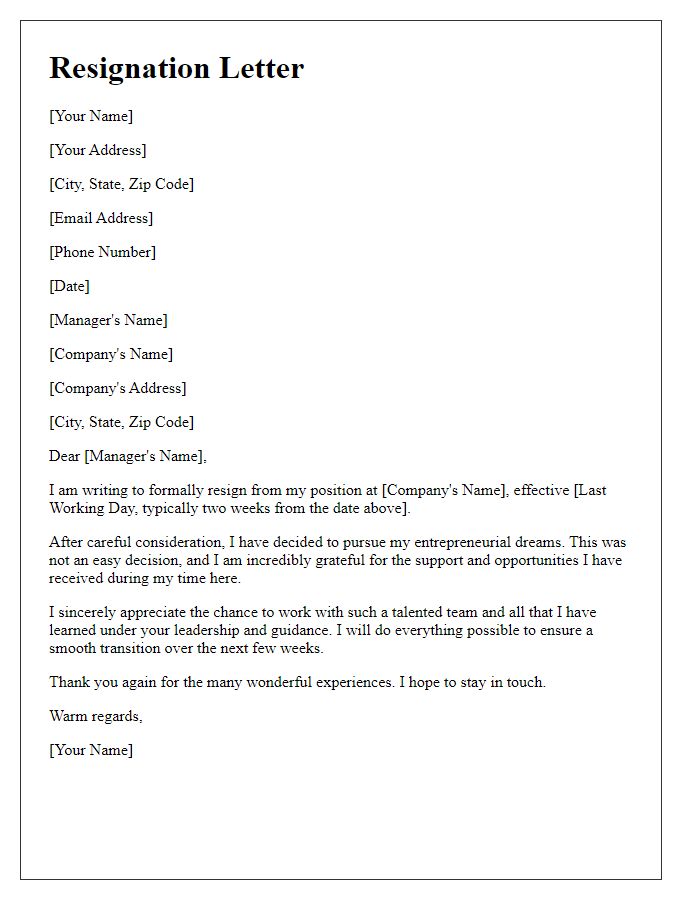
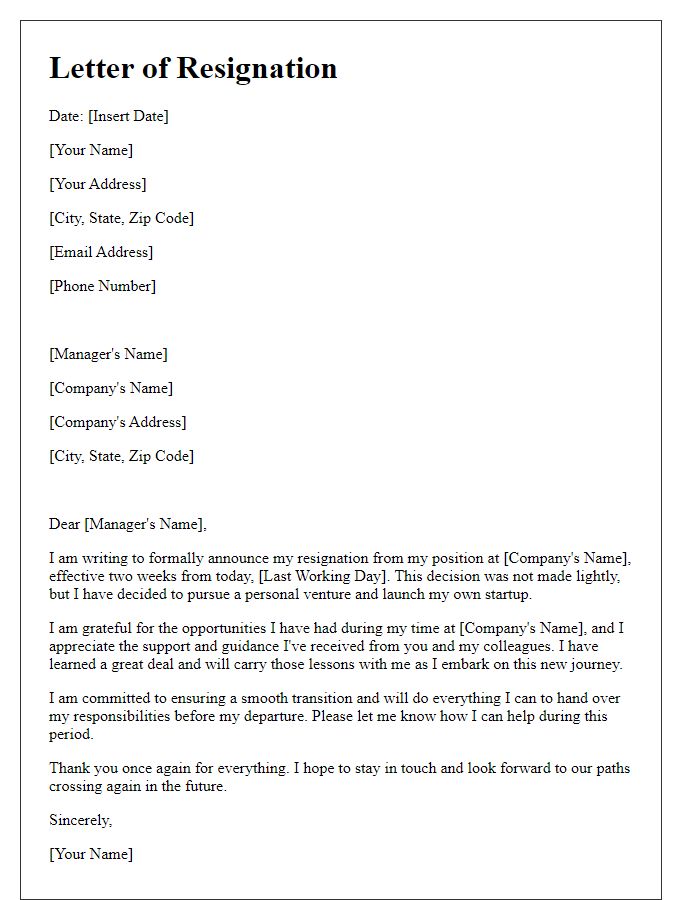
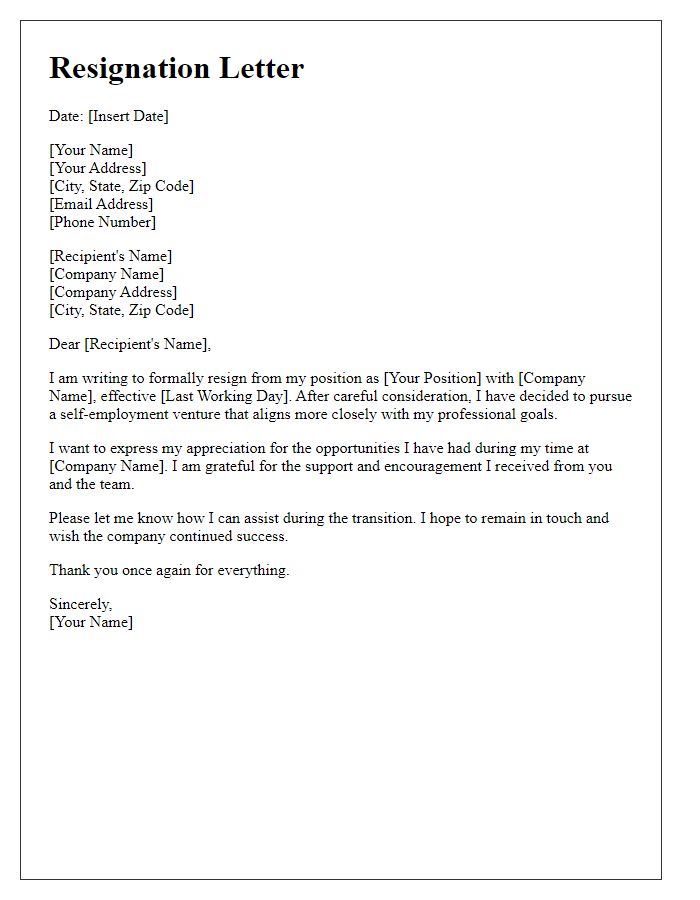
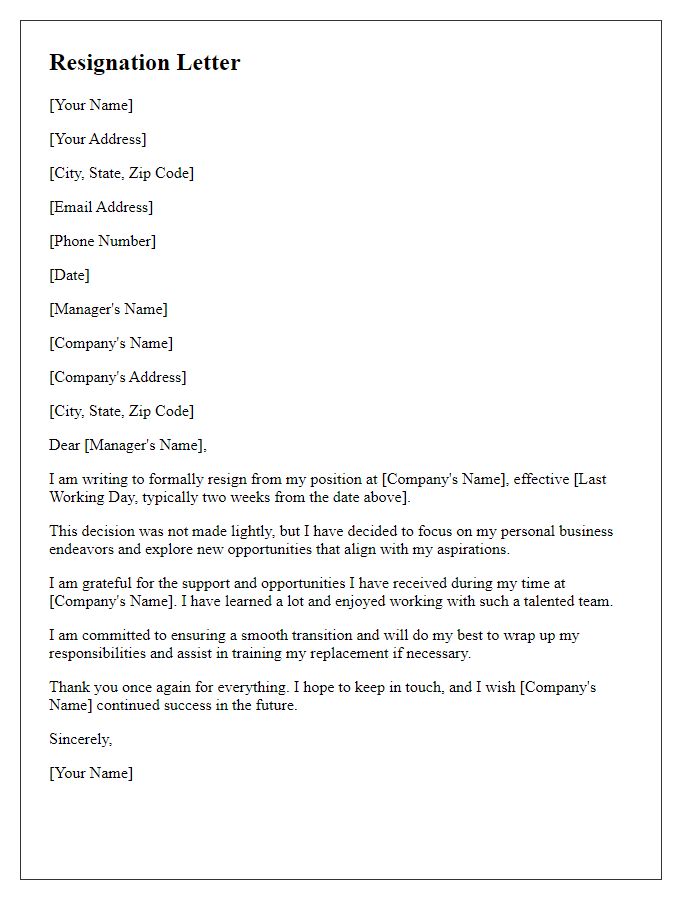
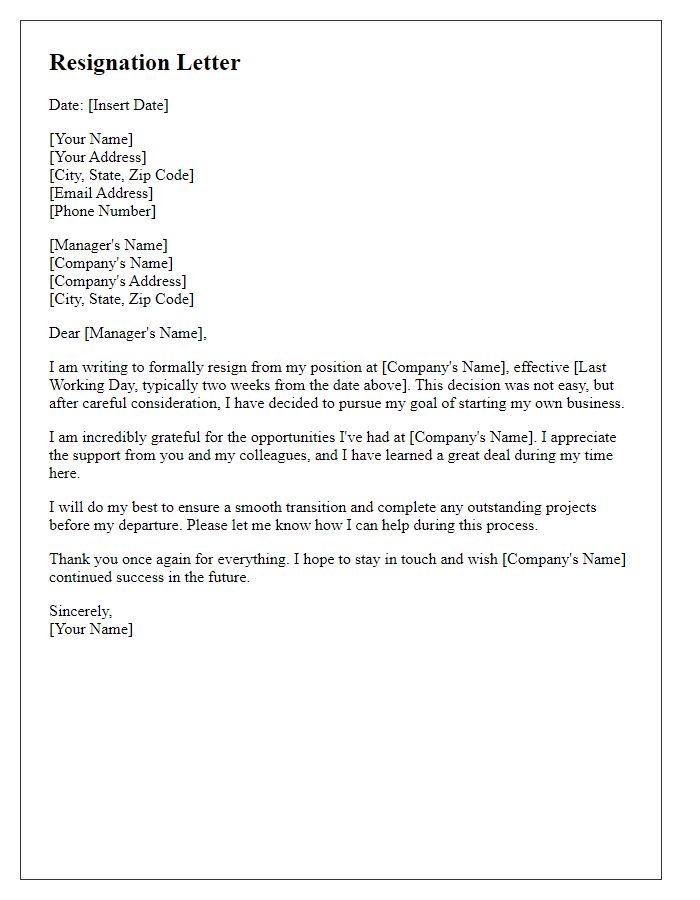
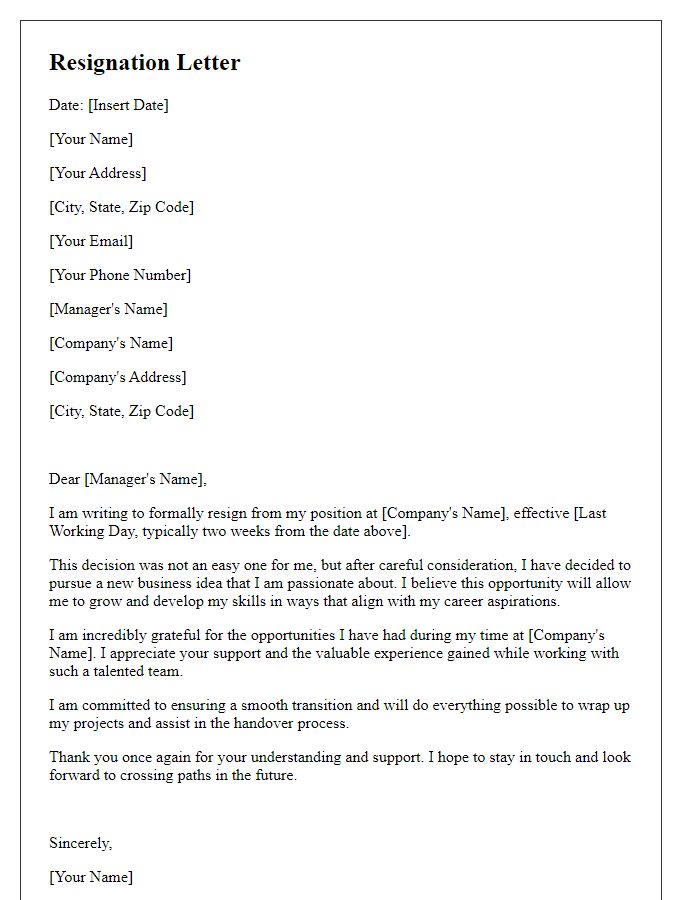
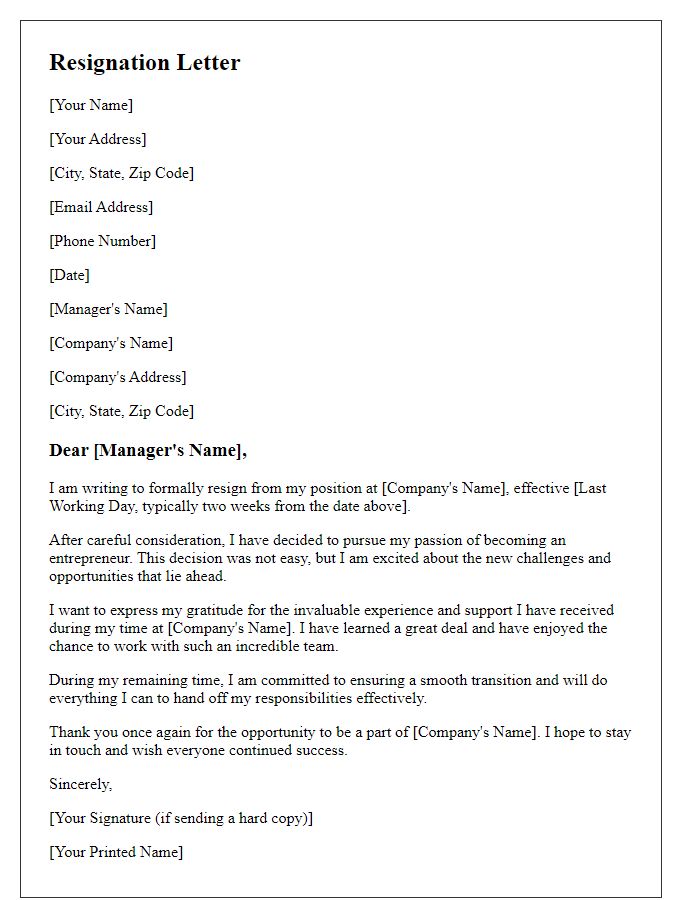
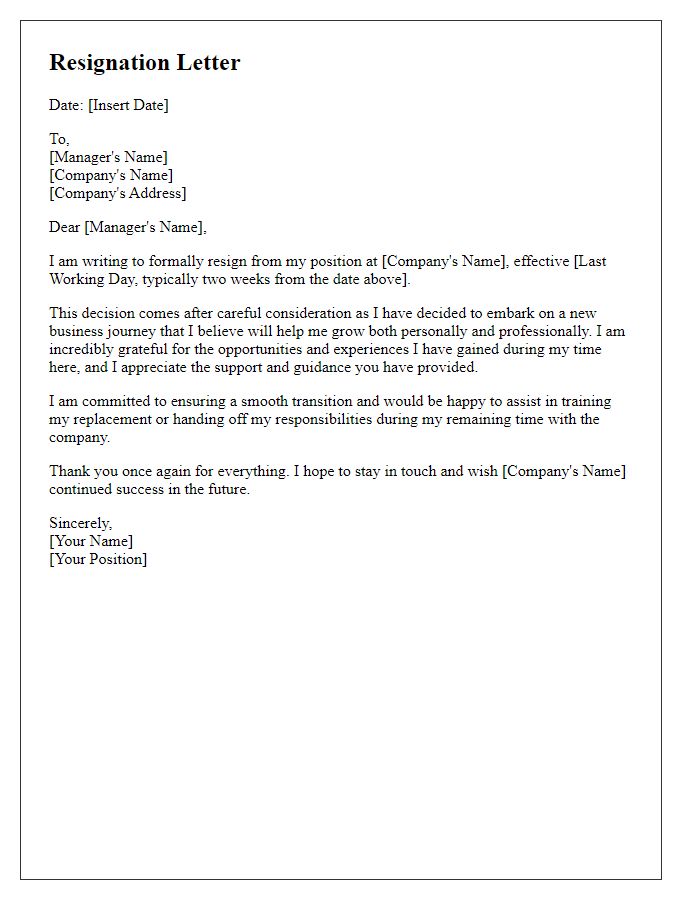
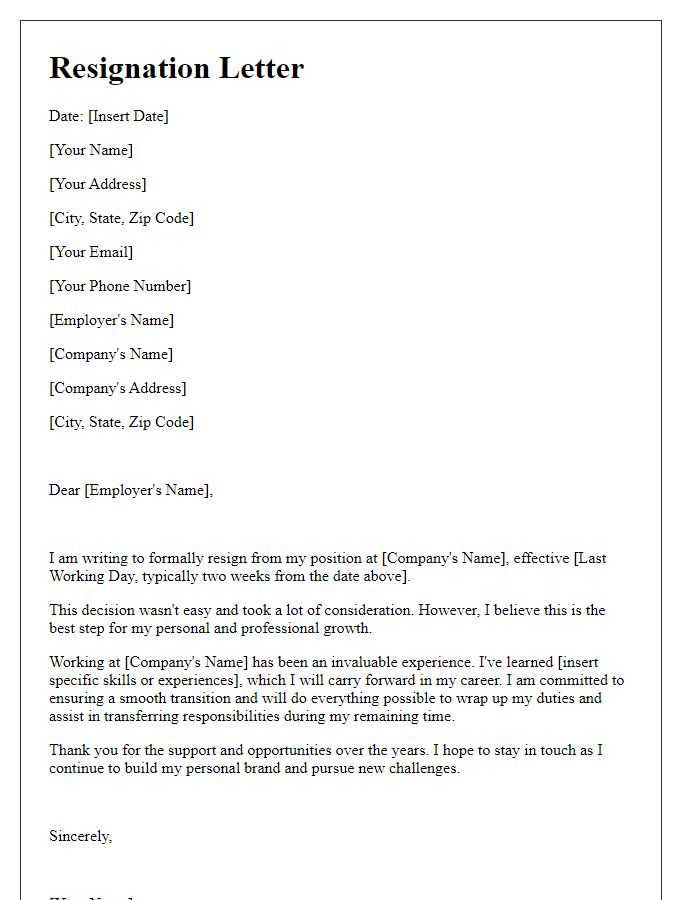
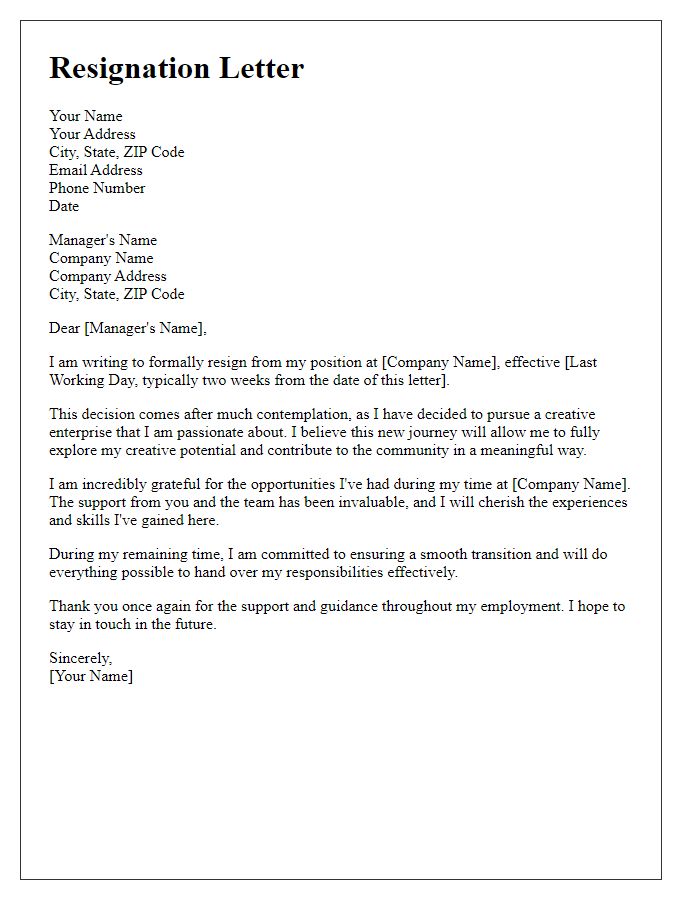


Comments